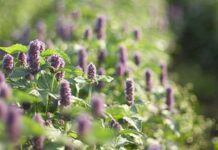How Can We Protect Ecology?
Ecosystem is a broad term that describes the living organisms and abiotic factors that make up the environment. These include the air, soil, and water. We can all help to protect our ecosystems, but the process begins at home. Everything from our phones and computers to the food and clothes we eat and wear impacts our environment. If we do not protect our environment, then we will end up being responsible for the degradation of the world around us.
Natural and less toxic recovery, replacement and control measures
There are many steps that human beings can take to protect our world’s ecology. These include reducing pollution, protecting wildlife and aquatic habitats, and minimizing exploitation of natural resources. In many cases, these measures can be as simple as natural breeding or replacement of degraded resources. Natural recovery, replacement, and control measures for protecting ecology are not just reactionary measures to immediate threats.
Stopping pollution
The National Wildlife Federation, which advocates for environmental protection, has a broad vision of what is needed to sustain our environment. Its policies emphasize ecosystem integrity, protection of public health, and pollution control. The League views environmental protection as a problem solving process, and believes that the federal government should lead and provide technical assistance to help states implement effective pollution control programs. Environmental protection should not be seen as an expensive extra cost; it should be considered a cost of doing business.
In addition to promoting public health, the United Nations has a number of goals that focus on protecting the environment and reducing pollution. The UN Sustainable Development Goals include the protection of life, the production of clean water, and combating climate change, among other priorities. The EU’s Environmental Action Plan outlines nine priorities for environmental protection. There are many ways to promote a cleaner environment, and reducing pollution is an important first step.
One of the most important ways to reduce pollution is to eliminate it at its source. This approach, also known as source reduction, helps reduce pollutants and contaminants in waste streams, and minimizes the need for costly controls and cleanup. By reducing pollution at its source, industry can eliminate the need for costly cleanups and controls. This means less waste to handle, which makes economic growth more viable. In addition, pollution prevention practices reduce health and environmental problems, and lower financial costs.
Buying locally or organically sourced foods
Purchasing locally grown or organically produced foods has several benefits for the environment. Not only are these foods fresh and healthy, they are also pesticide and chemical-free. They help protect the environment by cutting down on transport and refrigeration costs. And buying locally sourced food also helps save money on food waste. When food is flown to a distant destination, the goods often spoil before they are purchased, so buying local can help reduce waste.
Purchasing locally grown or organically sourced food supports local economies. Small farms, like those operated by the Center for a New American Dream, tend to grow more diverse crops than large, factory farms. This helps preserve biodiversity and the agricultural gene pool – a key factor in long-term food security. Purchasing locally produced foods can help fight global warming. Fresh foods travel an average of 1,500 miles to reach the grocery store. This eliminates unnecessary fuel-intensive transportation and saves on transportation costs.
Purchasing organic or locally sourced foods can also help protect the environment. This way, you’ll reduce your carbon footprint while supporting the local economy. Plus, you’ll be helping the local economy, which is another good reason to buy locally. By purchasing locally, you’ll also be protecting the ecology by helping your community to thrive. With so much food traveling around the globe, it is no wonder that consumers are increasingly turning to organic foods to eat healthier and more naturally.
In addition to being better for the environment, buying local food helps prevent runoff into rivers and lakes. Buying locally from local farmers also helps prevent eutrophication, which is a serious form of water pollution. When water becomes too nutrient-rich, algae bloom and dead zones form. The local cycle of nutrients would prevent this problem. It would also help protect wildlife by preventing the spread of pesticides and chemicals in the region.
Avoiding sending chemicals into waterways
Water pollution is a real problem that threatens wildlife and human health. Heavy metals and chemicals from wastewater enter waterways where they contaminate aquatic ecosystems, reducing their life span and reproduction. These chemicals can move up the food chain where they are ingested by predators. This can cause big fish to accumulate toxic levels. The solution is simple: avoid sending chemicals into waterways and reduce your water pollution.
One of the most significant causes of water pollution is agriculture. Animal waste, fertilizers, and other chemicals can pollute our waterways and cause health problems. Every year, 3.5 million Americans contract a disease linked to contaminated water. Disease caused by these chemicals can also be transmitted from person to person. To reduce the risk of contracting these diseases, it is important to avoid sending chemicals into waterways. There are several ways to protect our water supplies.
Switching to reusable items
You can do your part to help protect our ecology by switching to reusable items. By using reusable items, you can reduce the amount of trash that ends up at the curb. Many reusable bags are recyclable, meaning that they can be used again. The bags can also be recycled into useful items. Moreover, they help to reduce the trash that ends up in landfills. Using reusable items can save your time and money at the same time.
In addition to recycling, switching to reusable items helps reduce the carbon footprint. Some companies have started offering reusable products and services. One example is Euro Pool Group, which accepts beer bottles, plastic and paper. The company is also exploring ways to automate reusable packaging for its food supply chain clients. One more example is Container Centralen, which has a fleet of flower auction carts that run throughout Europe.
Reusing materials helps the economy, because a reused item doesn’t require new production. Reusing materials also saves money because it is much cheaper than buying new. It also helps the environment because you can use your old items multiple times and donate them to other organizations. This process can save both the generating company and the recipient organization money by preventing the need for a landfill. It is also a great way to support local reuse centers.
Switching to reusable items is not only important to protecting the ecology, but it can save your money and your time. By using reusable products, you can avoid wasting money on disposable bags and shopping bags. Not only will you be saving money on SUPP, but you can also help your bank account by reducing waste. In addition, it will help you avoid purchasing new products every now and then, so you can keep buying items that are recyclable.













